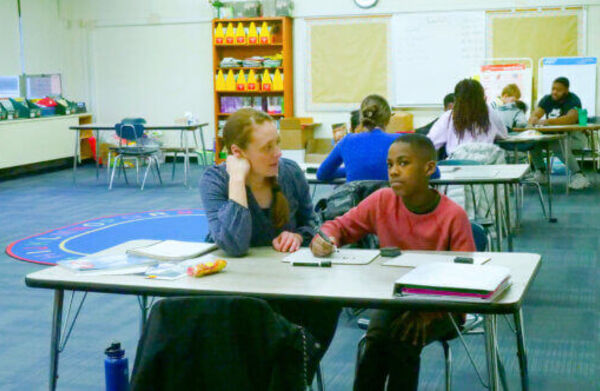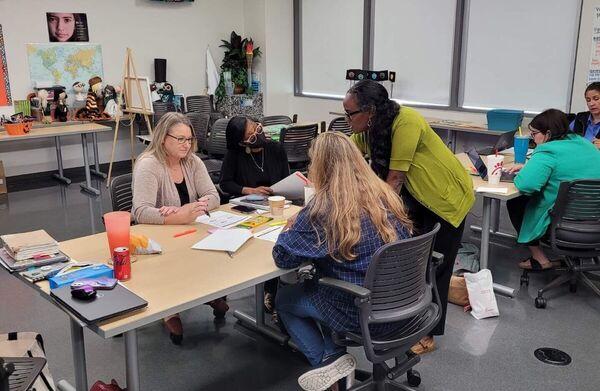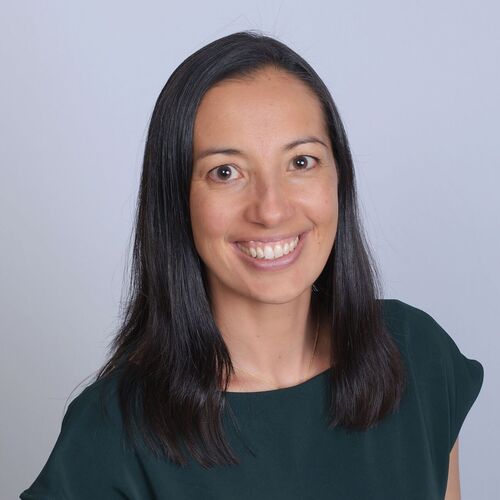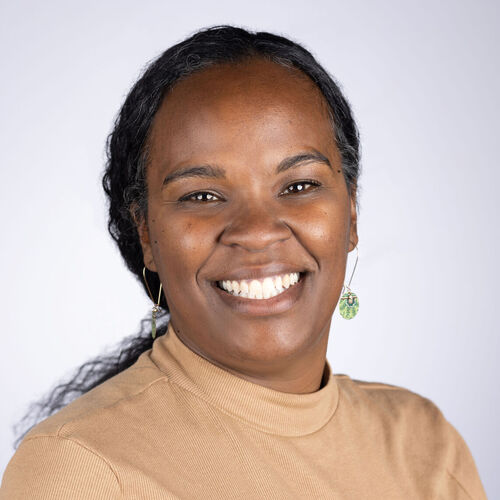Posted on
Ramping up the impact of teacher coaching
Category: Cognitive Science
This post is part of a periodic series about Deans for Impact’s Design for Practice Network. Temple University’s work on infusing cognitive science into teacher preparation is also featured on the blog.
Liz Sweeney, an induction coach with BPE, has always been interested in how to motivate students by helping them take on the beliefs, behaviors, and skills of learners. So when Julie Sloan, director of induction for graduates of BPE’s Boston Teacher Residency program, suggested they focus their coaching of novice teachers on what cognitive science tells us about student motivation, Liz was definitely interested, if a bit unsure of what that might entail.
Liz skimmed through Why Don’t Students Like School?, Dan Willingham’s book about applying cognitive science to classrooms, to learn more. Finding that the principles deeply resonated with her past experiences, she read it a second time. By the third time through, she was thinking, “How can I use these principles to guide my coaching work with teachers?”
Working with Deans for Impact’s Design for Practice Network, Liz and Julie designed a pilot that focused an inquiry group of novice teachers on the student-motivation question from The Science of Learning . While they were hopeful that the pilot activities – group and individual coaching anchored in cognitive science and online journal reflections – would be helpful for the 10 participating teachers, they had no idea how much it would also change the way they thought about their own practice.
Validating past experiences
Liz was a veteran teacher and instructional leader in Boston Public Schools before working with Boston Teacher Residency. She’d had many rich professional development opportunities that allowed her to reflect on her practice. But reading and thinking about cognitive science has been different. Many classroom practices Liz has relied on are named in the principles of cognitive science; cognitive science has validated her experiences as a teacher and coach, grounding her intuitions in a research base. As she said, “Now I know that I’ve been on the right track. My experiences are not just my experience or my opinion or my style, but they sit in a larger context.”
Providing a shared language
Cognitive science has also given her a language to describe the rationale for practices she used intuitively, helping her build a schema for her teaching and coaching. Grounding conversations with novice teachers in shared readings about how students learn has changed her coaching sessions. Having the same words to use about how students learn has “sharpened our focus and ramped up the impact of the conversations,” according to Liz. Liz and the coaching team have captured this shared language in “coaching cards” and other resources for novices that make visible cognitive science vocabulary and help novice teachers connect abstract concepts to their teaching practices.
Depersonalizing coaching feedback
Liz has also found that centering coaching conversations on the science of how students learn allows her to “depersonalize” some of the hard coaching conversations. Rather than passing judgment on practice or evaluating the lesson, Liz works with novices to relate their instructional decisions to key principles in cognitive science. “It’s a reminder to them,” Liz said. “They say, ‘Oh yeah, when I’m planning, I need to make connections to prior knowledge. Oh, I didn’t give any feedback.’ You don’t have to say anything because they know it’s important.” Liz found that having novices use cognitive science principles to reflect on what happened made it easier for them to identify areas for improvement and next steps on their own.
Liz and other BTR coaches can now ground their questions and feedback in learning science, which changes the way feedback is received. Julie described another coach, Sarah Langer, and her experience coaching a secondary math teacher to use more charts and artifacts in the classroom. “Before, Sarah would have called this ‘style,’ and may have had a hard time convincing a secondary teacher to use what is seen as an ‘elementary’ technique,” Julie said. “[Now] Sarah can have her think intentionally about how charts can serve as ways to ground abstraction and help free up working memory.”
Allowing coaches to be partners
Liz also approaches conversations with novices differently: “I feel like I have freedom to ask difficult questions in neutral ways, rather than feeling I need to know the answer or be able to fix something,” she said. “We can look together at the cognitive principle and practice and ask, ‘What do we see? What do we want? How is your practice impacting students’ motivation and learning?’” Julie noticed the shift also, observing, “Coaches are brainstorming with teachers, partnering with them to troubleshoot together about how to motivate students to learn.” Cognitive science provides a set of guiding principles; coaches and novices partner to apply those principles to practice, going through an inquiry cycle – planning, implementing, and reflecting – and making connections between practice and learning. And the benefit went both ways: Liz found that it was an opportunity for her to reflect on her own long-held beliefs about learning and motivating students and novice teachers.
The focus on cognitive science has sparked a lot of interest in BTR (so much that a second group for secondary STEM teachers launched, focused on the question, “How do students learn and retain new information?”). But the design and implementation process hasn’t been easy. Julie and her team surfaced a number of lessons they’ve learned and questions they are still pondering.
- This requires a lot of learning for teacher-educators. While all of the BTR induction coaches are veteran practitioners, none of them had a background in cognitive science. Liz and others on the team have devoted a significant amount of time to learning more about cognitive science, reading and discussing articles and books on the topic and attending cognitive science conferences. “This is all new to me,” Liz said. “Regardless of how long I’ve been teaching or learning, I have a lot to learn about cognitive science.”
- It’s helpful to have access to experts. Without deep expertise of cognitive science, the team is often afraid they will overuse or overgeneralize their new way of thinking, and they sometimes can’t answer the more nuanced questions from novice teachers. Having Jon Starr, a cognitive scientist at the Harvard Graduate School of Education, speak to their team was really valuable.
- This is not a silver bullet. “This is something that won’t change your practice today, but over time it will impact your learning and your students’ learning,” said Liz. It’s important to help teachers (and coaches) realize that this isn’t a quick fix, but rather a new mental model about how students learn that will change practice over time. Which begs the question…
- When should teachers learn cognitive science? According to Liz, it is more difficult to use cognitive-science principles when coaching novice teachers who are still working on the fundamentals of classroom management and learning their new school context; these teachers are more focused on the immediate challenges of their classrooms. An open question for the BTR team is whether novices – who are still learning their content area and gaining fluency in executing teacher moves – are ready to think about these concepts in relation to their teaching. And if pre-service and novice teachers should be developing these mental models over time, how should they scaffold and sequence that learning and integrate it with deliberate practice of specific skills?
The BPE induction team is learning as they go. More than once, Julie and Liz have wished they were back in January, starting this work over again with the benefit of everything they have learned, so they could incorporate this more deeply into their coaching work and document the impact on novice practice and student motivation. But when I asked Liz if she thought BTR should continue this work, she said, “Without a doubt.”
Related Stories:

Blog
The “so what” question
Temple University’s College of Education, led by member dean Greg Anderson, knows what it wants...
April 21, 2016

Blog
Empowering clinical supervisors as instructional coaches
We supported clinical supervisors to strengthen coaching and feedback for candidates.
August 15, 2023



